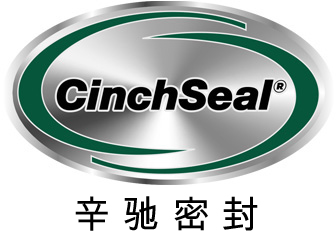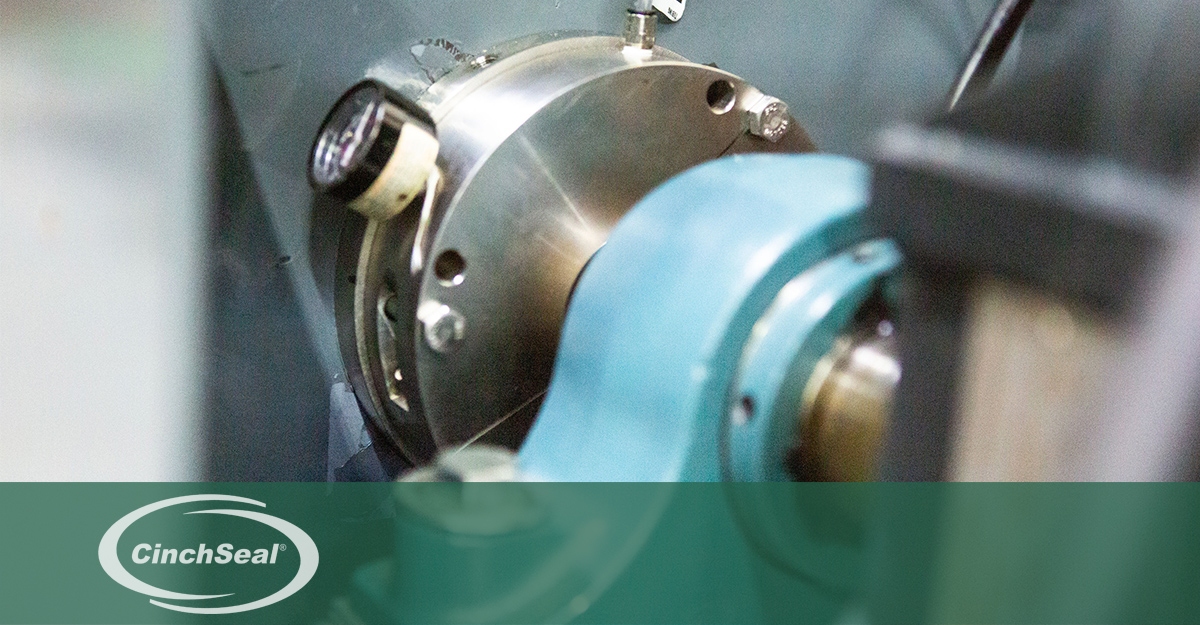CinchSeal’s Modern Shaft Seal Improves ROI
Screw conveyors, ribbon blenders, and paddle mixers are vital equipment used for moving and mixing products in bulk-handling and processing operations. These pieces of equipment, whether they move products around the factory or mix batches, are critical to keeping production lines
As these processes are crucial for many businesses, it’s important to invest in the right equipment so that there is no downtime or stoppages in production. CinchSeal has become the sought-after component to replace mechanical packing because CInchSeal rotary shaft seals maximize efficiency and return on investment.
Mechanical-packing effluent costs add an estimated $6,300 to $10,000 annually to the plant’s operating budget. With CinchSeals, the rotary shaft seals are self-adjusting, forming a tighter fit that stops material loss while preventing shaft wear. These seals can be quickly installed, which cuts down on the amount of downtime needed to place them along the shafts. In addition to preventing product loss through leakage, companies are enjoying the rate of return on machinery with longer lasting shafts.
Replacing shafts that have been worn down from mechanical packing can cost companies upwards to $10,000 or more per shaft. Making the necessary repairs causes production losses, amounting to hundreds of thousands of dollars because the lines are not functional for at least 2 days while the repairs are made.
When deciding between mechanical packing and CinchSeals, take the following factors into consideration.
What is Mechanical Packing?
Mechanical packing and other old sealing techniques relied on ropes. There are several types of ropes, such as gland packing made from natural fibers and old ropes, and more modern packing using braided materials.
These ropes are wedged into the gap that is found between the shaft and the wall of the process equipment. Companies turned to this method for the initial installation savings because it was simple to install and maintain. There were also different materials that could be used to create mechanical packing ropes, which was essential for certain industries, such as food and chemical processing, to prevent contamination.
Unfortunately, while the initial mechanical packing installation and maintenance costs were low, the mechanical packing method created high clean-up and repair costs. Mechanical packing materials eventually leaked. No matter which material was used as the rope, it would require readjustment to retighten the fit around the shaft. Workers would then spend time cleaning up the leaked products, which created workplace and environmental hazards for products that are corrosive or toxic.
Another major issue with mechanical packing is that the braided rope would wear down the shaft. This serious problem would require the entire shaft to be serviced, as high repair and replacement costs placed companies in a financial bind. When considering the costs of lost products, shaft damage and workplace clean-up, companies needed a better alternative that would last longer and prevent product leakage.
CinchSeal Rotary Shaft Seals: A Cost-Effective Alternative
More companies are turning to CinchSeal as the economically viable alternative to mechanical packing methods. Mechanical packing can be difficult to install and maintain but the split CinchSeal is much easier and consists of an O-ring, split SS plate, split SS Housing, and split PTFE rotor cups and elastomer.
The effective and easy-to-work-with CinchSeal automatically self-adjusts for the wear on the rotating seal faces, ensuring that products will not leak along the shaft during prolonged use. In addition, since it is self-adjusting, less maintenance work will be needed. By using stainless steel and FDA-approved Silicone and PTFE materials in the seal, companies obtain an environmentally-friendly, “green” seal as the material is compatible with their processes and the types of products that are made.
With the advances of rotary shaft seal technology and improved machining practices, the initial cost for purchasing CinchSeal components has never been more attractive. And with the return on investment that is realized when switching to Cinchseal, converting to Cinchseal justifies company budgets. Combining this advantage with no product leakage has made CinchSeal the appropriate solution for rotary shafts used in production processes. Making the investment upgrade to CinchSeals can provide companies with the production processes they need with lower operational costs.





No Comments
Sorry, the comment form is closed at this time.